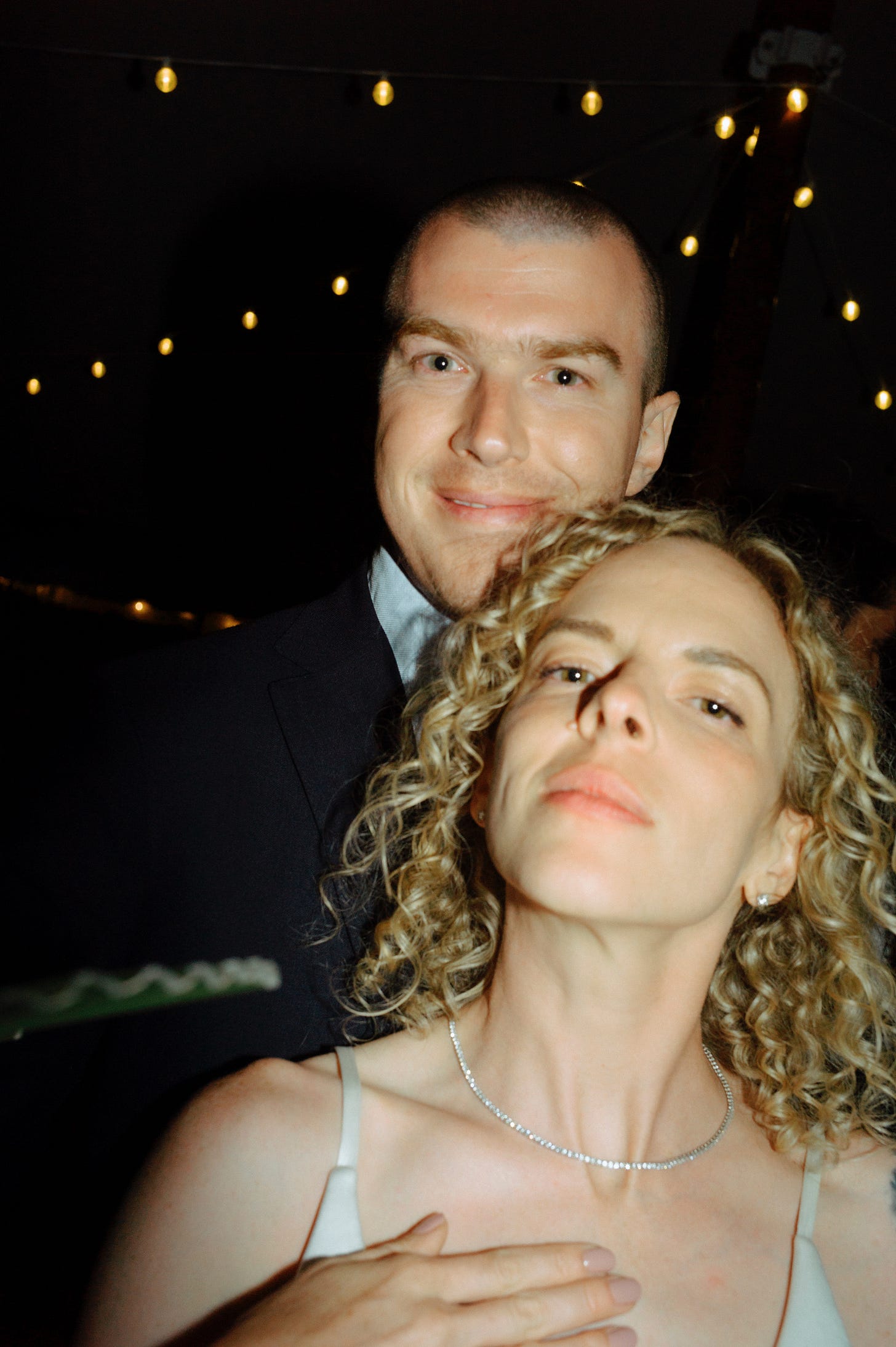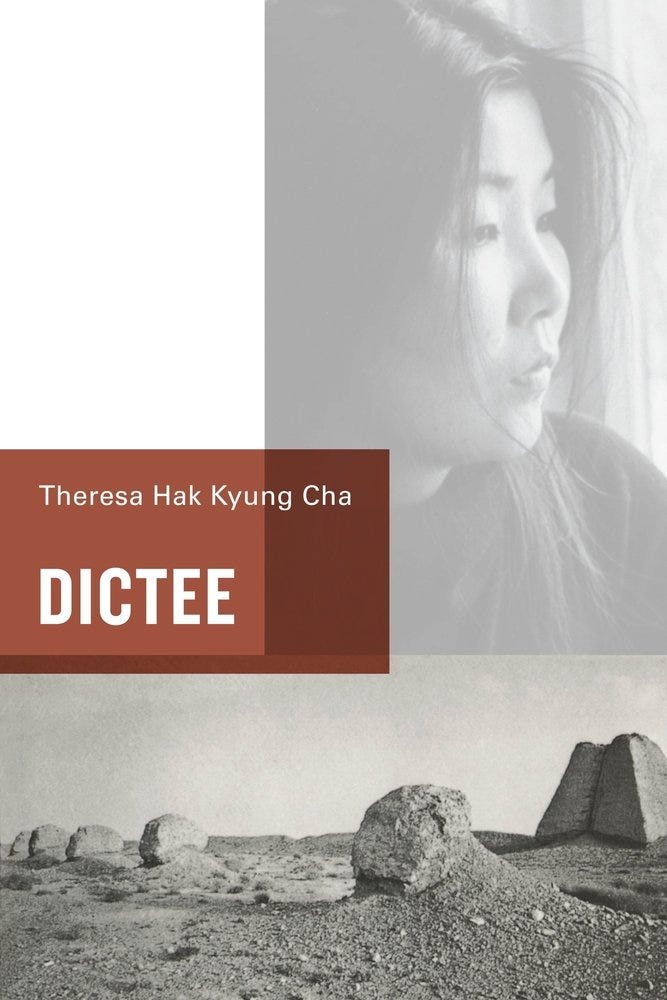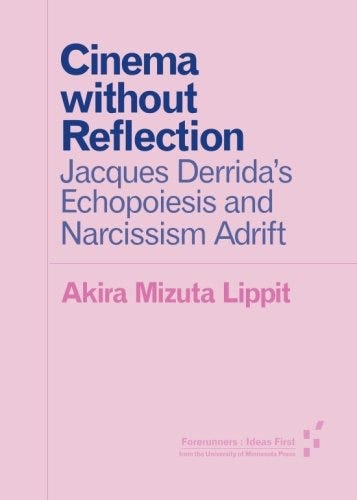#22: Theresa Hak Kyung Cha, Akira Mizuta Lippit, Jia Zhangke
Hello again, friends! A couple weeks ago I was in NY for my friend Erynn’s wedding. The wedding was very sweet. I gave a speech and had to cut it short because I started crying. It seemed that criteria for attendance was that you work in the photo industry. Here are some pictures:
Quinn and I hung out in NYC for a couple days before and after the wedding. We saw a few amazing exhibits at the New Museum, ate a lot of good food, and hung out with a bunch of friends. Hello to those friends!
We’re back home, getting ready to go to another wedding in Seattle in a week and then Guatemala a few days after returning from Seattle. The weird post-grad void-ish space I’m existing in is finally almost over and I’m excited to move onto new things.
I’ve read a few books in the past couple weeks. The first two impacted me significantly less than I had hoped, but I think that’s a me-problem. Please bear with my poor writing as I’m quite sick right now.
Dictee by Theresa Hak Kyung Cha
This one stumped me. Poetry is, in general, pretty hard for me. I don’t even know exactly what made this so hard for me other than perhaps the depth of metaphors here. It’s an autobiographical poem in prose. It works by telling the stories of Joan of Arc, a Korean revolutionary named Yu Guan Soon, Demeter and Persephone, the author’s mother, and finally her own life. It’s fairly clear that this written in ‘82 from its deconstructive slant and buzzwords like “utterance.” I really should like this more than I did, but I wasn’t able to absorb much. It’s brief and I’ll probably be rereading at some point this year.
Cinema without Reflection by Akira Mizuta Lippit
I guess this is an effort to establish a Derridean theory of cinema, something Derrida never did. It’s kind of cool, but I mostly didn’t care. It’s an extended metaphor about Narcissus and Echo and the metonymy/confusion that establishes the condition of possibility for cinema and how cinema provides a way out of narcissistic subjectivity. You believe any of that shit? I kind of do, but I’m also repulsed by anything so psychoanalytic. This Forerunners series of books is always cool though, so it might be worth reading if you’re more into film theory or psychoanalysis.
Jia Zhangke on Jia Zhangke by Michael Berry
Finally, something good to say!
I loved this. I love Jia Zhangke. This is a series of interviews conducted with Zhangke. He discusses his motifs of destruction and modernization, his interesting use of audio, his relationship to his hometown, Chinese censorship, the different eras of Chinese cinema, his method of script writing, individualism, autonomy, Mao, and so much more.
Part of the excitement for me came in form of confirmation. I spew a lot of shit on this lil blog and I’m not qualified to say any of it. I failed out high school because of my poor reading comprehension! However, when reading this I discovered that I have been reading Zhangke’s films according to his intentions and I impressed myself.
If you’ve watched any of his films, especially his first trio of films which I’ve written about here, this may be worth reading. It is especially worth your time if you are an American viewer wanting to understand the greater context of Zhangke’s oeuvre.
Quinn and I go to Guatemala two weeks from today. I’m very sick right now and am trying to read Jose Lezama Lima’s masterpiece of Cuban literature Paradiso before I leave. I’m not sure what this newsletter will be like for the two months that I’ll be gone, but stay with me and I’ll at least let you all know how my Spanish language learning journey is going!










